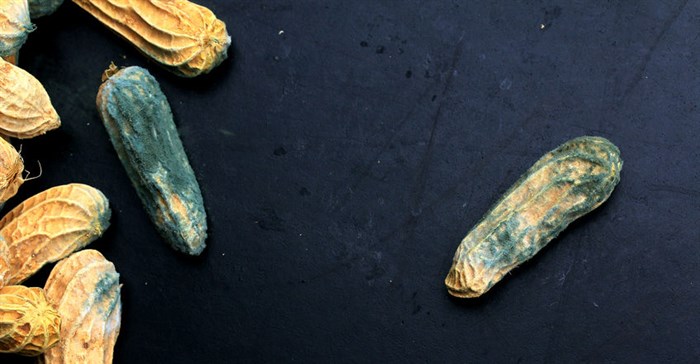
Subscribe & Follow
Advertise your job vacancies
Poisonous fungus gets into food and eats away at health
Eating poisonous food is not always about consuming a deadly mushroom and keeling over. It can be a long and slow process, but just as dangerous. Now, Theodora Ekwomadu, a researcher from North West University, has raised the alarm over the high levels of mycotoxins (from the Greek "fungus poison") in the food we eat on the African continent. Affected foods potentially include wheat, alcoholic beverages, corn, sugar, peanuts, barley, and cheeses.

©Thanthima Limsakul via 123RF
Ekwomadu says there are 300 types of mycotoxin and, of those, 12 are a threat to the health of both us and our animals. "They are the most hazardous of all food contaminants and can have long-term cumulative effects on health. This means that even low levels of mycotoxins in staple foods are very serious because people consume so much of them."
In other words, if you regularly consume mycotoxin-contaminated food you are exposing yourself to low levels of highly toxic chemicals that slowly destroy wellbeing. Over time this could have serious consequences, which include cancer and immune system disorders.
In 2003, the UN estimated that 25% of food was affected. More recent studies put the estimate at 75%, but Ekwomadu said this might be due to better systems of evaluation. Either way, the bad news is that cooking food, popularly thought to kill germs, has no effect on fungus poison. That's because they're resistant to heat.
So, what makes Africa more vulnerable than other regions?
Firstly, the poisons love a warm, humid climate.
In addition, from climate change to poor agronomic (soil management and crop production) practices, a number of factors increase the continent's risk.
"There is a tendency to harvest crops early, resulting in a high moisture content, which means that they will take longer to dry and are prone to fungal contamination. "This threat of fungal growth is exacerbated by inadequate storage facilities with poor ventilation, high temperatures, and humidity," explains Ekwomadu.
In Africa, only 15 countries, including South Africa, have regulations on mycotoxins, and even then, they don't "make a difference on the ground", says Ekwomadu.
Source: The Times
Source: I-Net Bridge

For more than two decades, I-Net Bridge has been one of South Africa’s preferred electronic providers of innovative solutions, data of the highest calibre, reliable platforms and excellent supporting systems. Our products include workstations, web applications and data feeds packaged with in-depth news and powerful analytical tools empowering clients to make meaningful decisions.
We pride ourselves on our wide variety of in-house skills, encompassing multiple platforms and applications. These skills enable us to not only function as a first class facility, but also design, implement and support all our client needs at a level that confirms I-Net Bridge a leader in its field.
Go to: http://www.inet.co.zaRelated
Death of 6 Soweto children linked to Terbufos 28 Oct 2024 South Africa must push agricultural exports within Brics 23 Oct 2024 Jumbo and Cash & Carry stores introduce Econo Maize Meal 20 Mar 2024 Climate change: Alarming Africa-wide report predicts 30% drop in crop revenue, 50 million without water 1 Mar 2024 How crop diversification is boosting productivity and sustainability in SA agriculture 30 Jan 2024





